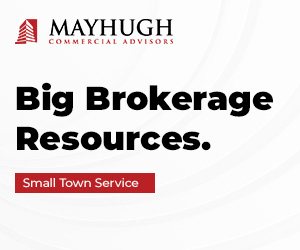

The 1031 Exchange Ripple Effect: Benefits Beyond Tax Deferral
ROUND TABLE September 4, 2024 admin

Investors are no strangers to uncertainty when participating in the real estate market, but one thing is very certain – Section 1031 of the Internal Revenue Code provides a substantial and quantifiable benefit to the economy, while also providing several benefits at the taxpayer level. When real estate investors engage in 1031 exchange transactions, they are making an economic contribution. These investors are also personally seeing the benefits of utilizing the 1031 exchange. Not only are they able to defer their capital gains tax liability, but they also expand opportunities to relocate to more suitable geographic regions, exchange their inefficient properties for more efficient ones, and make the highest and best use of their property.
Tax deferred exchanges have existed since the 1920s in various forms. Congressional records show that rationales for early tax deferral mechanisms were continuity of investment and administrative convenience. Fast forward to today, and the current tax code and regulations include rules specifically outlining who can benefit from an exchange and under what conditions. Section 1031 of the tax code is somewhat unique in that the reinvestment incentive it provides is enjoyed by investors of all types – from individuals and trusts to businesses (small and large), and from family partnerships to large corporations. Note, however, that real estate developers that build and sell improved real estate, and “flippers” who buy and rehabilitate properties quickly with the sole intention of resale, generally cannot take advantage of a 1031 exchange. Their real estate is considered inventory and is specifically excluded from tax deferral treatment under the code.
Exchange industry data indicates that most exchanges involve properties worth under $1 million. These types of properties are typically owned by individual investors and small businesses. Utilizing a 1031 exchange allows these taxpayers to reinvest the entirety of their sale proceeds from investment real estate in new property to expand their businesses or diversify investment holdings. Likekind exchanges are thus integral to the efficient operation and ongoing vitality of thousands of American businesses in a wide range of industries, which in turn strengthens the U.S. economy and creates jobs. These industries, which include real estate, construction, farming, ranching, transportation, manufacturing, and equipment and vehicle rental and leasing, provide essential products and services to consumers and are a vital part of our economy.
In response to legislative proposals to repeal Section 1031, in 2015 Ernst & Young, LLP completed a study on 1031 exchanges, which was updated in May 2022. The study concluded that elimination of Section 1031 would slow economic growth, reduce GDP and hurt many U.S. small businesses. More details are available at 1031BuildsAmerica.org/ wp-content/uploads/Summary-EYStudy- on-Economic-Contribution-of- 1031-to-US-economy_5-4-22.pdf.
The study’s key findings confirm that the 1031 exchange industry creates close to 1 million jobs and nearly $50 billion in labor income. In 2021, exchanges generated $97.4 billion in value added to the United States GDP. As discussed above, by deferring taxation on capital gains, investors can utilize more of the proceeds from their investment property sale to purchase higher value property. They can also make improvements to property to increase its efficiency and value through their 1031 exchange. Through these channels, exchange activity also boosts general real estate activity and contributes to federal, state and local tax revenue (even while capital gains taxes are deferred for the investor).
While 1031 exchanges have been shown to boost the economy, they are also beneficial on the taxpayer level. Of course, the inherent goal of a 1031 exchange is to defer all capital gains tax from the sale of investment property. This can be achieved if the replacement property purchased in the exchange is like-kind to the property sold and is the same or greater in value (along with some related rules that must be followed, which you can read about here: First- Exchange.com/just-basics-tax-deferredexchanges- under-irc-1031. However, an exchange is also a way for a taxpayer to benefit economically by changing the nature of their investment in response to a changing market, without the burden of taxes. Examples of taxpayers who could benefit from a 1031 exchange include (but are not limited to):
• Investors looking to change the type of property they own (perhaps from commercial office space to industrial or multi-family), or from an active management property to passively managed property. Investors that wish to consolidate multiple investments or those that want to manage their risk by diversifying their portfolios.
• Taxpayers with an inefficient business real estate asset with a high debt ratio and significant capital gains.
If you believe a 1031 exchange may be right for your goals in the current real estate landscape, it is always imperative to discuss the intended transaction, tax implications, risks and other issues with your independent tax and legal advisor. While First American Exchange Company does not provide tax or legal advice, we have helped thousands of taxpayers successfully complete even the most difficult transactions and make it our business to keep taxpayers informed of relevant exchange deadlines or potential pitfalls that could jeopardize a transaction. We encourage you to reach out to your First American Exchange Company representative, as well as your tax and legal advisors, early in the process of preparing to sell your investment property to ensure a smooth 1031 exchange transaction.
Trish Mack is business development manager for First American Exchange Company. A veteran of the commercial real estate industry with over 30 years of diversified real estate and business development experience, Trish’s knowledge and background have given her unique insight into the benefits of Section 1031 and an understanding of the unique needs of investors, brokers and other transactional players. For more information, please contact 727-494-5186 or email tmack@firstam.com.








